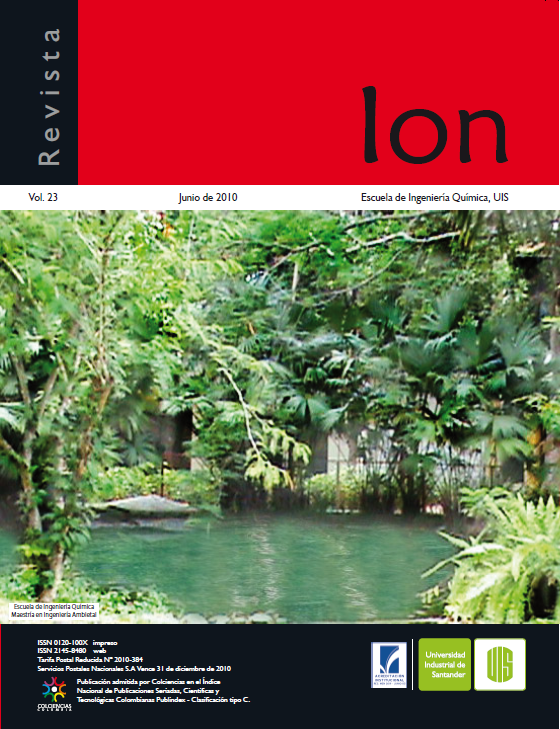ANÁLISIS DEL CICLO DE VIDA PARA LA PRODUCCIÓN DE BIODIESEL A BASE DE ACEITE DE HIGUERILLA EMPLEANDO LA METODOLOGÍA “DE LA CUNA A LA CUNA” ESCENARIO SABANA DE TORRES, SANTANDER
Publicado 2010-09-30
Cómo citar
Resumen
RESUMEN
En el presente estudio se aplica la metodología Análisis de Ciclo de Vida (ACV) con el enfoque denominado “de la cuna a la cuna” a la producción de Biodiesel de higuerilla con el objetivo de identificar las etapas del ciclo de vida que afectan más al medio ambiente y elaborar el respectivo perfil ambiental. El enfoque “de la cuna a la cuna” permitió conocer el tiempo necesario de recuperación del terreno, considerando que un porcentaje de los residuos vertidos al medio ambiente, son fijados en la naturaleza gracias a los diferentes ciclos biogeoquímicos. Las etapas contempladas en el ACV son: cultivo e integración de los ciclos biogeoquímicos, extracción del aceite, trasformaciones industriales, uso y disposición de residuos. Se estudiaron las siguientes categorías de impacto: Cambio climático, acidificación, eutrofización, formación de oxidantes fotoquímicos, efectos respiratorios y energía no renovable, identificando las etapas relevantes relacionadas al consumo de energía y emisiones al medio ambiente.
Palabras claves: ACV, biocombustibles, emisiones, impacto ambiental.
ABSTRACT
In this study we work with the Life Cycle Assessment (LCA),is applied with the approach known as “from the cradle to the cradle” to the production of biodiesel from castor oil the objective with of to identify the phases of the life cycle which more affect the environment and make the respective environmental profile.” From the cradle to the cradle” allowed us to know the necessary time of recovery of terrain, considering that one percentage of the discharges residues to the environment are fixed by the nature thank to the different biogeochemical cycles. The phases of the life cycle assessment (LCA) are: cultivation and integration of the cycles biogeochemical, oil extraction, the industrial transformation, the use as biofuel and the residue disposal. The categories of impact studied were: change climatic, acidification, eutrophication, photochemical smog formation, respiratory effects and non-renewable energy, identifying relevant phases related with the consumption energy and emissions to the environment.
Keywords: LCA, biofuel, emissions, environmental impact

